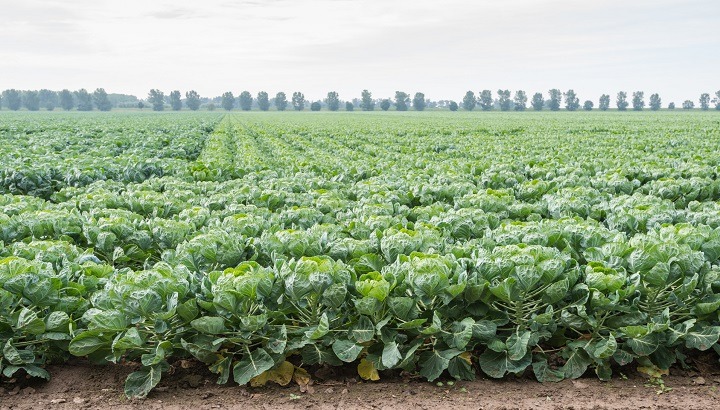A friend of mine got married in Northern California recently, and I flew out there for the wedding. The venue was over two hours from the airport so I rented a car, and it wasn’t long before I found myself driving through farmland as far as my eyes could see. At one point in my drive, I noticed that I was surrounded by acres upon acres of nothing but brussels sprouts. It was amazing to see how huge these fields were… I looked it up later and it turns out that I was driving through the epicenter of the US brussels sprout crop, which is several thousand acres of land that yields over 30,000 tons of brussels sprouts annually. Those fields have been used to grow brussels sprouts year-round since the 1940’s… which creates a problem that you might not expect.
As plants (including brussels sprouts) grow, they extract minerals from the soil. These nutrients include familiar molecules like calcium, magnesium and potassium… as well as less well-known minerals like selenium, chromium, and molybdenum. These soil-derived minerals are a major part of the reason why vegetables are so good for us.
Now, without getting too scientific… there is a law of physics that explains that matter (including minerals) can neither be created nor destroyed (it’s called the Law of Conservation of Mass for you science types). In simple terms, it means there is a fixed amount of calcium, magnesium, potassium and other minerals here on Earth… we can’t create them or or destroy them, we can just move them around. That means that when the brussels sprouts sucked the minerals out of the soil in 1945, there would have be less of those minerals available for the crop in 1946. Carry that process forward for 75 years and, unless the farmers made a conscious choice to put them back, there will be significantly less of those minerals in that soil today. And that’s exactly what has happened.
Those massive fields are an example of a common modern agriculture practice called “monoculture,” which refers to the growing of single crops in large fields… the same crops in the same soil, season after season, year after year. There are many downsides to monoculture, but one of the biggest problems is that the soil in those fields becomes depleted over time. The obvious endpoint of growing food in nutrient-depleted soil is… nutrient-depleted food. Crops that get harvested from these fields have lower levels of minerals and vitamins than they should. A significant amount of research has confirmed this effect. Every ten years, the USDA does studies testing the vitamin and mineral content of fruits and vegetables. With every passing study, the amount of nutrition in our fruits and vegetables is going down… there has been a reliable decline over time.
According to an article published in Scientific American:
“Modern intensive agricultural methods have stripped increasing amounts of nutrients from the soil in which the food we eat grows. Sadly, each successive generation of fast-growing, pest-resistant carrot is truly less good for you than the one before.”
Additional research highlights just how much our food is decreasing in nutritional value. One study found that select fruits and vegetables declined in protein, vitamin B2, vitamin C, calcium, iron, and phosphorus between 1950 and 1999. Another found that the vitamin C levels in fresh vegetables declined by 30 percent between 1975 and 1997. Other nutrients, such as vitamin A, calcium, and iron, also dropped by large percentages (21 percent, 27 percent, and 37 percent, respectively). These are significant drops.
Yet another study found, shockingly, that it would take 8 of today’s oranges to equal the amount of vitamin A in an orange from our grandparent’s time. Yes… it’s pretty depressing. It’s good to eat fruits and vegetables, they’re still our best source of nutrients, however… they’re not what they once were.
In addition to the problem of soil depletion, many of the most popular varieties of fruits and vegetables that are grown today are popular because of size, shelf life, and tolerance for transportation rather than their nutrient content. Our quest to grow bigger, prettier fruits and vegetables faster is harming us.
So, what do we do to get the most nutrition out of our food? The best thing we can do is to choose organic fruits and vegetables whenever possible. Organic fruits and veggies are grown in healthier, more nutrient dense soil. Organic farmers are not allowed to spray herbicides and pesticides on their crops, so those organic veggies need to defend themselves from pests without chemical assistance. That ability to defend themselves depends upon them growing in nutrient rich soil.
A number of studies have demonstrated the the value in choosing organic fruits and vegetables. They are are more nutritious, which makes them better for you. They’re also better for farmers, and better for the planet… so eat organic whenever you can.
– Dr. Joshua Levitt









